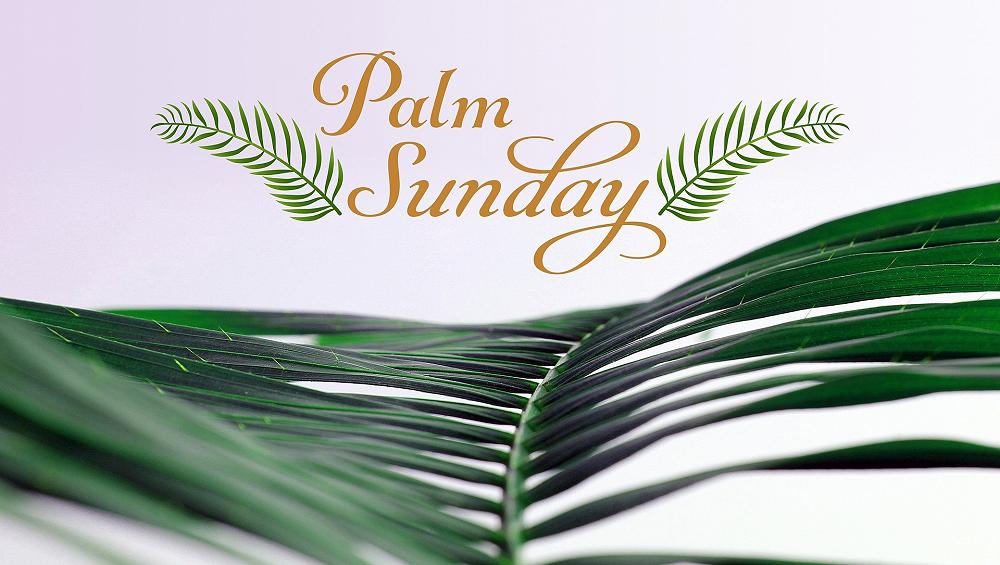
Palm Sunday in this Time of Covid-19 — Matthew 21:1-11
Kathleen Rushton discusses Matthew 21:1-11, the Gospel reading for Palm Sunday, and how we might celebrate in our bubbles.
In the story of Jesus's birth in Matthew's Gospel we are told that when the Magi came looking for “the child who has been born king of the Jews”, Herod and “all Jerusalem” were troubled (Mt 2:3). Then when Jesus went up to Jerusalem for the last time and is met with the acclamation: “Blessed is he who comes in the name of the Lord” (Mt 21:9), it caused “the whole city” to “shake” (Mt 21:10; Jerusalem Bible has “in turmoil”). The Greek verb for “shake” which is normally used to describe an earthquake links Jesus’s entry into Jerusalem with his death — after he died the “earth shook” (Mt 27:51). Then an earthquake prepares for, but does not cause, the opening of Jesus’s tomb (Mt 28:2). For those with eyes to see, Jesus’s entry into Jerusalem is part of these earth-shaking events. For the disciples, life will never be the same again.
And what might this earth-shaking event say to us in the midst of the Covid-19 Lockdown? Last week in a Skype meeting, a person commented that at the time of the Christchurch earthquakes everyone heard them coming and felt them. In scary contrast, Covid-19 is invisible and silent as it comes among us.
Preparation for Entry
In Matthew 21:1-7 Jesus and his disciples have been travelling. This text is interlaced with quotations from the prophets. The Mount of Olives is where the final struggle will take place (Zechariah 14:4).
Welcome Procession
Jesus reframes the trappings of Roman entrance processions to highlight the difference of the reign of God. He rides a donkey not a chariot. He is welcomed by crowds of rural pilgrims coming to Jerusalem for the Passover not the rich and powerful. There are no speeches. The people are with him and welcoming him. They call him “son of David”. This title is linked to Jesus’s ministry of healing marginalised people — persons who were blind (Mt 9:27; 20:30-31) and the daughter of Canaanite woman (MT 15:22) — as signs of God’s reign. The crowd call out for mercy with “Hosanna” — a Greek form of a Hebrew word meaning “save us.”
When Jesus rode into Jerusalem, crowds spread their cloaks on the road and “others cut branches from the trees” which they also spread on the road (Mt 21:8). This Palm Sunday we will not be blessing palms and processing into our churches. In this “out of the ordinary time”, when the church buildings are closed, we as Church are not. We remember that Emmanuel is with us in our bubbles and strengthens us in our fear and isolation.
Responding to Earth-Shattering Event
As we enter into Holy Week we can pray “Hosanna” – “save us.” We can pray “Hosanna – save us” for those on the front line of medical services, supermarkets and essential services. And for millions of people affected in diverse ways by Covid-19 — migrant workers in India who are fleeing the cities and trekking home long distances to their villages, prisoners in jails around the world, countries with insufficient medical equipment.
In solidarity with other Christians around the world, we could put a branch, flax, or other greenery in our window, our front door or somewhere where it can be seen from the street, reminding us we are not alone, God is with us, in these of dangerous times.
This is Holy Week in a new time. We can enter prayerfully practising in our bubbles the kindness and togetherness that is enveloping our nation. We can participate in raising the visibility of the reign of God through love — compassion, resilience, care, fortitude, wisdom and obedience for the common good. Like the disciples whose lives were never the same after Jesus entered Jerusalem, ours too have already changed and will continue to do so. Our challenge is to live faithfully in this new time.
Churches are not closed.
Buildings are closed.
You are the Church!
You are to remain open (cf. Bishop David Cremin).
